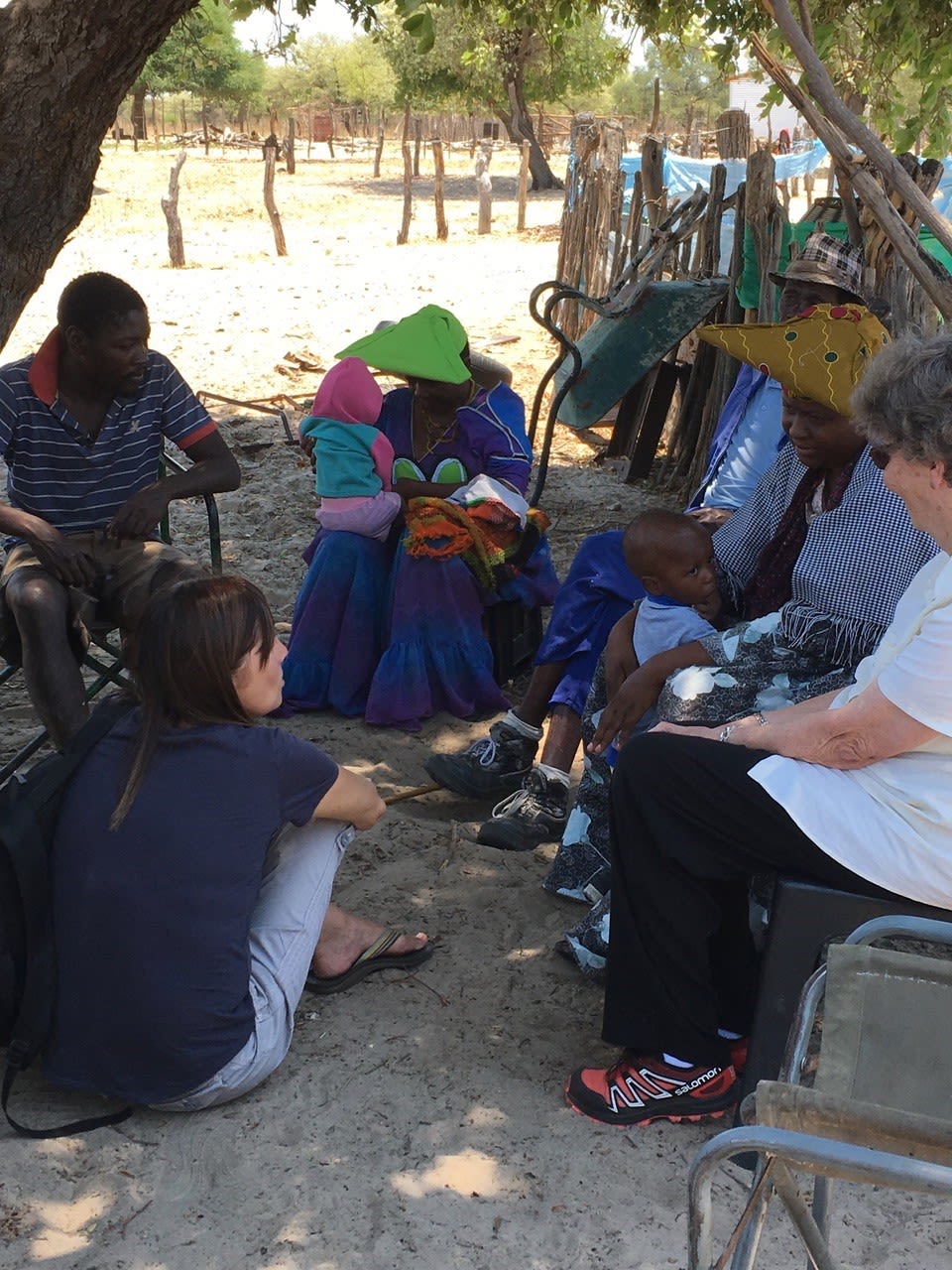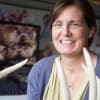New student video!
Enjoy this short but powerful new video of just a few of the dedicated and talented students working to help wildlife and make an impact around the world!
Winter 2019 Wildlife Health Cornell News
It's a wrap!
Once again, thank you for your support of Wildlife Health Cornell. We could not have met our goal without each and every one of you. Please enjoy a few more stunning images and links to additional information on everything happening under the vast wing span of Wildlife Health Cornell. Happy clicking!
Elvina experiences wildlife dentistry
Will gets chewed on by a playful young rhino
Robin Radcliffe teaches a new generation to protect pollinators and partners with leading organizations working on rhino and great ape conservation
Cornell's comprehensive care for wild animals at the Janet L. Swanson Wildlife Health Center, including a norther harrier that received a blood transfusion just in time to save its life.
Learn more about Chronic Wasting Disease in deer and the multitude of other species affected by the Cornell Wildlife Health Lab
Get at look at the future of planetary health and Cornell's Master of Public Health degree



Holy moly, you put us over the top!
Wow! Thank you, thank you, thank you for your generous support - we're over the top! (Just like Zach's "turtlesaurus" friend.)

Pre-Thanksgiving Gratitude
It's almost Thanksgiving. What are you thankful for?
This turkey is thankful for YOU -- and the Janet L. Swanson Wildlife Health Center at Cornell! Your gift makes a difference to the health of wildlife locally, like this recent "patient", and around the world. But we are running out of time to meet our goal of $7,500 to help even more wildlife.
Regardless of whether you enjoy time with friends and family over turkey or tofu on Thanksgiving, you can help again by spreading the word about this project.
You have our sincere gratitude.

Rhinos & water buffalo
Eric Teplitz, DVM '20 shares his personal experience and a picture of a friend:
My veterinary education and the experience offered by Cornell's international programs has taught me that conservation of wildlife is inherently dependent on the support and engagement of local communities. There are an estimated 68 Javan rhinos remaining on the planet, all of them inhabiting the single location of Ujung Kulon National Park in Indonesia. As nearby livestock can potentially transmit infectious diseases to the Javan rhinoceros, the health of the rhino and the water buffalo surrounding the park are inextricably linked. Through a collaboration between Cornell and WWF-Indonesia, our team worked to advance the health management of the water buffalo surrounding Ujung Kulon to both improve the livelihoods of the local villagers and protect the Javan rhinoceros.
Your support makes this work possible. Thank you!

Getting AHEAD in Botswana
Across southern Africa, foot and mouth disease viruses carried by wildlife have made it difficult or impossible for beef farmers living near wild animals to enter the world market. The current solution—vast fencing to separate livestock and wildlife—interrupts wild animal migration pathways and endangers their survival. An approach that focuses on beef biosafety along the production chain, one no longer completely dependent on fences, is now poised to deliver a win-win for farmers and wild nature. Members of our ‘Wildlife-Friendly Beef’ team, ecologist Shirley Atkinson and veterinarian Mary-Lou Penrith, meet with Herero families in northern Botswana to better understand the challenges of raising livestock while living with wildlife. This work is an exciting product of Cornell’s AHEAD (Animal & Human Health for the Environment And Development) program.
On behalf of Shirley and team, thank you for helping international communities find new, economically sustainable ways to live with wildlife!

Big Cats and Local Vets
An update from the field:
In Indonesia, our Wild Carnivore Health Team is training local veterinarians how to analyze Sumatran tiger samples to measure antibodies to canine distemper virus. Our research has shown this virus to be a very important threat to the conservation of tigers in Russia, and we are now leading research to assess its impact on other tiger populations.
Pictured: project collaborator Dr. Navapon Techakriengkrai from Chulalongkorn University, Bangkok teaches Indonesian veterinarian Dr. Silmi Mariya to read test results using a fluorescent inverting microscope.
Your support helps make this possible!

Thanks to you!
$25
On the ground
No animal is too small to be helped. No gift is too small to help, and everyone can get in on the ground level. Gifts at this level can support supplies and food for wildlife in need of a little rehab and a lot of TLC, just like that provided by the Swanson Wildlife Health Center.
$50
In the air
Buy supplies like scales, cages, or pop-up tents for the Swanson Wildlife Health Center. The Center helps injured wildlife, from hawks to chipmunks, snakes to woodchucks, rabbits to raccoons, and many more. So many that the Center exceeded last year's record high caseload in the first 8 months of this year.
$100
Rapid response on the road
The Wildlife Health Lab is New York's go-to expert team in an emergency when a new situation arises. Get them on the road to investigate an outbreak, prevent the spread of disease, and support their DEC partners as quickly as possible.
$250
Rehab
Food, equipment, and supplies are needed to rehab domestic wildlife so they can be returned to their environments.
$500
Conservation & communities
Students accompanying faculty on cross-cultural immersion experiences work directly with local communities to implement creative solutions to challenges affecting conservation for future generations.
$1,000
Spread the word
A gift at this level will fund a student who will develop resources allowing Wildlife Health Cornell to share the impact of faculty, resident, intern, and student work. Expanding awareness is crucial to long-term support of our programs.
$5,000
In the field
Send a student to Indonesia to work with local communities, to conserve wildlife and enrich their own lives. Or provide field equipment used to help animals in the wild closer to home, like moose - native New Yorkers.
$10,000
Fully immersed
Fully fund a summer practicum for an MPH student or an international wildlife fieldwork experience for a DVM student in Africa or Asia. Send a faculty member to work with Amur tigers or snow leopards. Or bring an international partner to the US to work with Cornell experts on vital conservation medicine projects.





